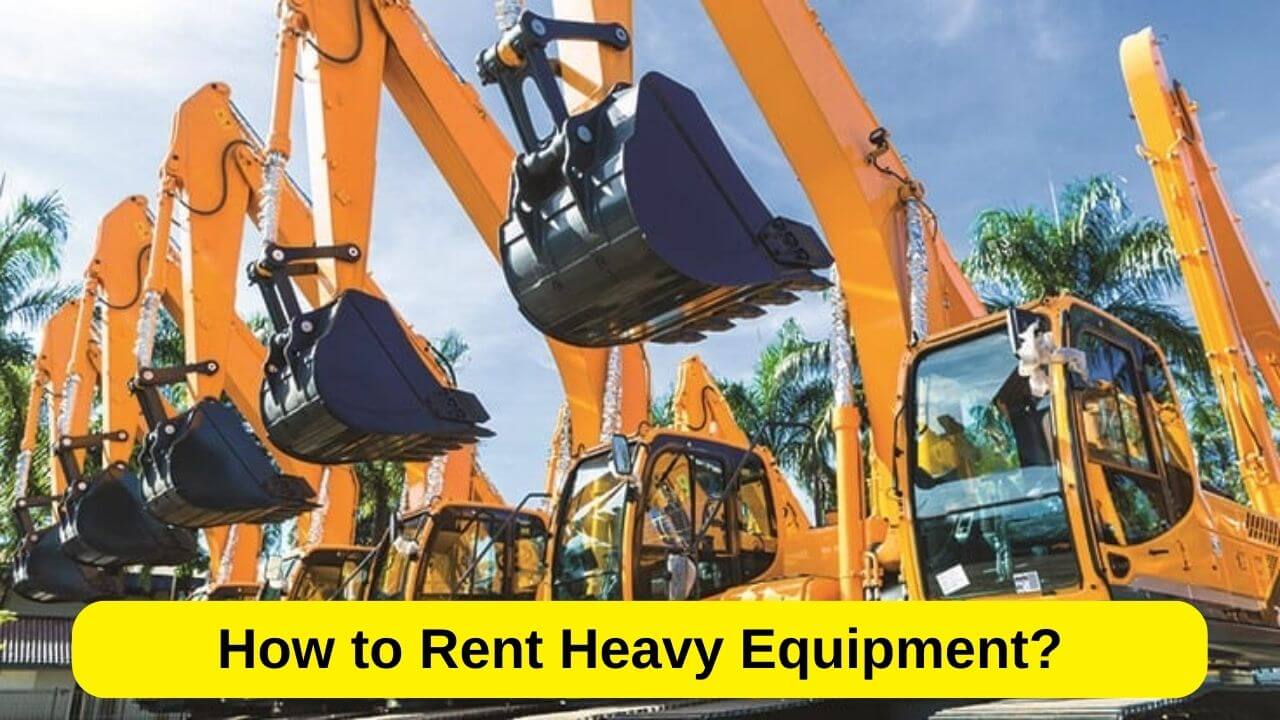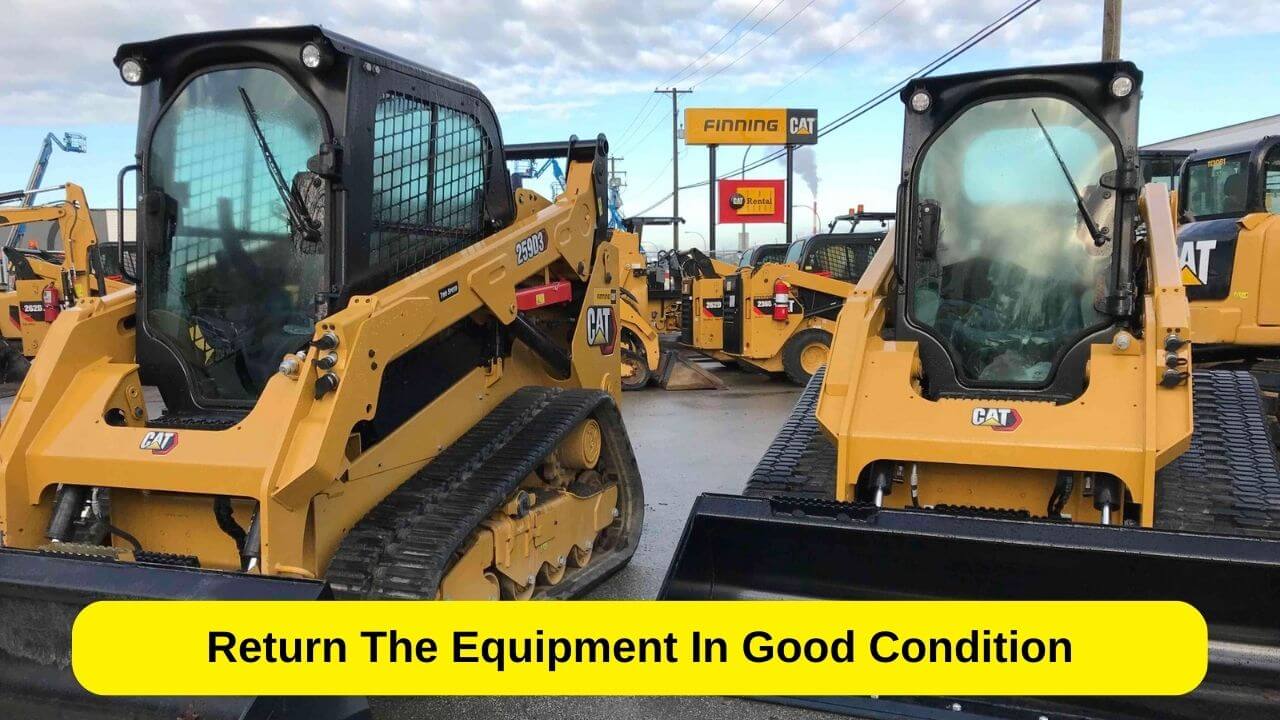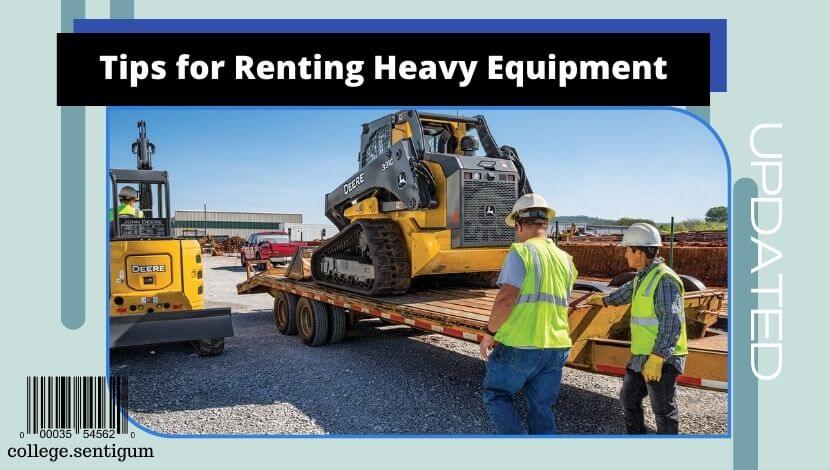Tips for Renting Heavy Equipment – Heavy equipment refers to large machinery and vehicles that are primarily used in construction, infrastructure development, mining, agriculture, and other industries that require the handling of heavy materials or the execution of heavy-duty tasks.
These machines are designed to perform tasks that are beyond the capability of human labor or smaller equipment.
Some common types of heavy equipment include: Excavators, Bulldozers, Loaders, Graders, Cranes, et cetera.
These are just a few examples of the wide range of heavy equipment available.
Each type of equipment serves specific purposes and is designed to handle different tasks and terrain conditions.
How to Rent Heavy Equipment?

Renting heavy equipment involves a series of steps to ensure a smooth and successful rental process.
Here’s a general guide on how to rent heavy equipment:
Assess your equipment needs: Determine the specific type and size of equipment required for your project. Consider factors such as capacity, features, and attachments needed to fulfill your project requirements.
Research Rental Companies
Look for reputable rental companies in your area that specialize in heavy equipment. Utilize online directories, search engines, or seek recommendations from industry professionals.
Contact Rental Companies
Reach out to the rental companies you have identified. Provide them with detailed information about your project, including the type of equipment needed, rental duration, and any specific requirements or attachments.
Obtain Quotes And Compare
Request rental quotes from multiple companies.
Compare prices, rental terms, additional fees, and insurance coverage offered by each company.
Take into account factors such as delivery/pickup services and maintenance support.
Review Rental Agreements
Carefully read and understand the terms and conditions outlined in the rental agreement.
Pay attention to rental duration, costs, payment terms, liabilities, insurance requirements, and any penalties for late returns, damages, or unauthorized use.
Arrange Insurance Coverage
Determine whether the rental company provides insurance coverage for the equipment during the rental period.
If not, check if your existing insurance policy covers rented equipment or consider purchasing additional coverage.
Schedule Delivery Or Pickup
Coordinate with the rental company to arrange for the delivery of the equipment to your project site.
If self-pickup is required, ensure you have the necessary transportation and arrangements to transport the equipment safely.
Inspect The Equipment
Before accepting the equipment, thoroughly inspect it for any damage or maintenance issues.
Note down any pre-existing damages and communicate them to the rental company to avoid liability disputes later on.
Understand Equipment Operation
Familiarize yourself with the equipment’s operation and safety features.
If necessary, request instructions or training from the rental company to ensure safe usage and optimal performance.
Document Equipment Condition
Take photographs or videos of the equipment’s condition before use to have a record of its initial state.
This can help resolve disputes over damages at the end of the rental period.
Adhere To Safety Guidelines
Ensure that operators and users of the rented equipment follow all safety guidelines and regulations.
Provide proper training to operators if needed.
Perform Regular Maintenance
Adhere to the recommended maintenance schedule provided by the rental company.
Keep the equipment clean and report any malfunctions or issues promptly to the rental company.
Return The Equipment On Time
As per the agreed-upon rental duration, return the equipment to the rental company on time and in the same condition as received.
Clean the equipment and remove any debris or materials.
Read More: Construction Equipment Financing Options Best Loan 2023
Tips For Renting Heavy Equipment

Renting heavy equipment can be a cost-effective solution for construction projects, landscaping, and various other industrial applications.
Here are some tips to keep in mind when renting heavy equipment:
Assess Your Project Needs
Clearly define the scope of your project and the specific equipment you require.
Consider factors such as the type, size, and capacity of the equipment needed to ensure it aligns with your project requirements.
Research Reputable Rental Companies
Look for established and reputable rental companies that specialize in heavy equipment.
Read reviews, check their equipment inventory, and compare prices and rental terms from multiple providers to get the best deal.
Verify Equipment Condition And Maintenance
Before renting any equipment, inspect it thoroughly or request detailed information about its maintenance history
Ensure that the equipment is well-maintained, in good working condition, and meets safety standards.
Understand Rental Terms And Agreements
Carefully review the rental contract and terms before signing anything.
Pay attention to the rental period, costs, insurance coverage, and any additional fees or penalties associated with late returns, damages, or repairs.
Consider Insurance Coverage
Determine whether the rental company provides insurance coverage for the equipment. If not, check if your existing insurance policy covers rented equipment or consider purchasing additional coverage to protect against potential damages or accidents.
Plan For Transportation And Logistics
Factor in transportation logistics when renting heavy equipment.
Determine how the equipment will be transported to and from your project site and if the rental company provides delivery and pickup services.
Alternatively, you may need to arrange for transportation independently.
Operator Proficiency
Ensure that you have operators with the required skills and certifications to operate the rented equipment safely.
If you don’t have qualified operators, consider hiring operators provided by the rental company or arranging for training before the rental period begins.
Communicate Project Details
Provide the rental company with accurate project details, including the duration, location, and specific requirements.
Clear communication will help them better understand your needs and assist in recommending the most suitable equipment for your project.
Test The Equipment
Prior to accepting the equipment, test it on-site to ensure it is functioning properly.
Familiarize yourself with its operation and safety features.
If any issues are discovered, promptly notify the rental company to avoid liability for damages or malfunctions.
Return The Equipment In Good Condition

Take care of the rented equipment during the rental period and return it in the same condition as received.
Clean the equipment and remove any debris or materials.
Failure to return the equipment in good condition may result in additional fees or charges.
Remember, safety should always be a priority when renting heavy equipment.
Follow all safety guidelines, provide proper training to operators, and adhere to any regulatory requirements or guidelines related to the equipment’s use.
Read More: 10 Best Practices for Maintaining Heavy Equipment
Conclusion
Renting heavy equipment can be a practical and cost-effective solution for various construction, industrial, and landscaping projects.
With proper planning and attention to detail, renting heavy equipment can significantly contribute to the success of your project while minimizing costs and logistical challenges.
